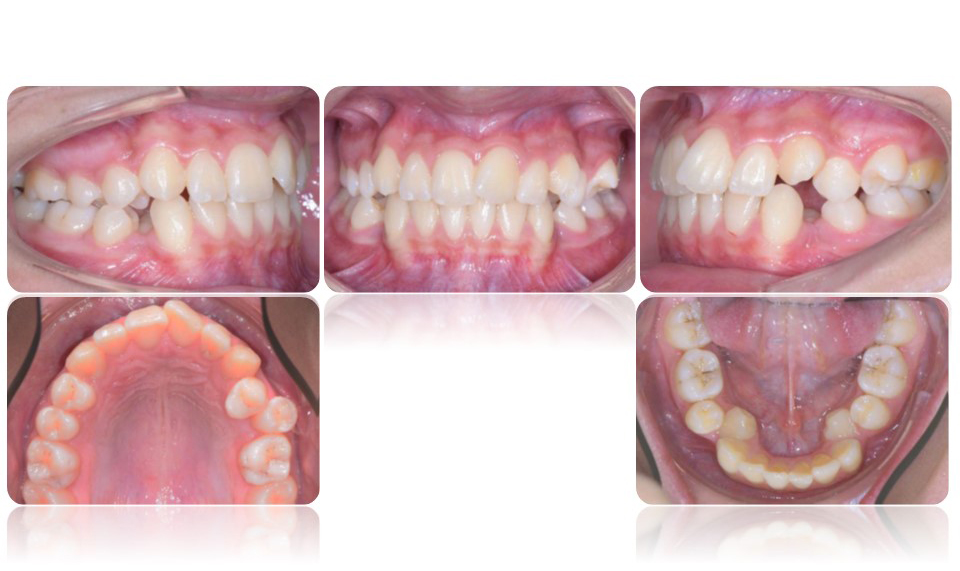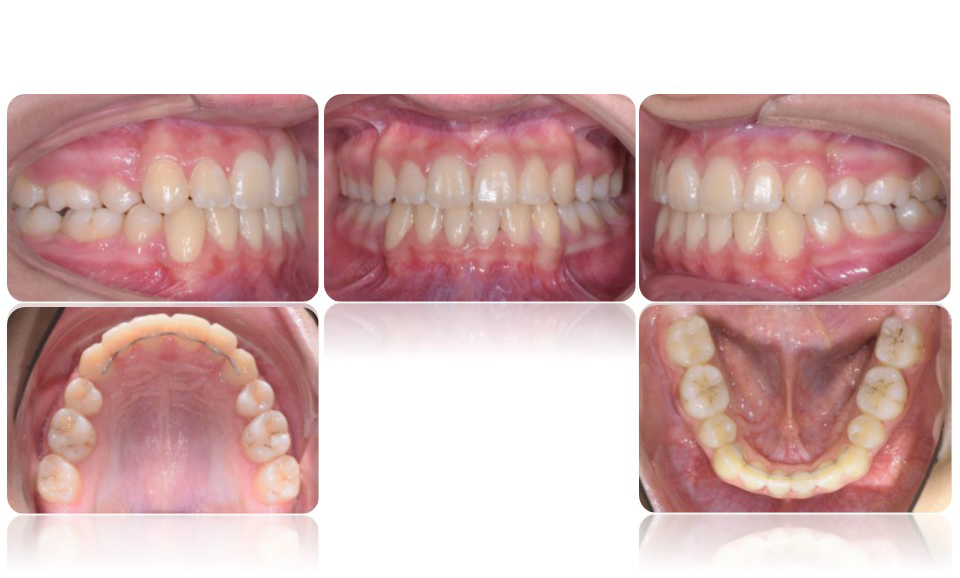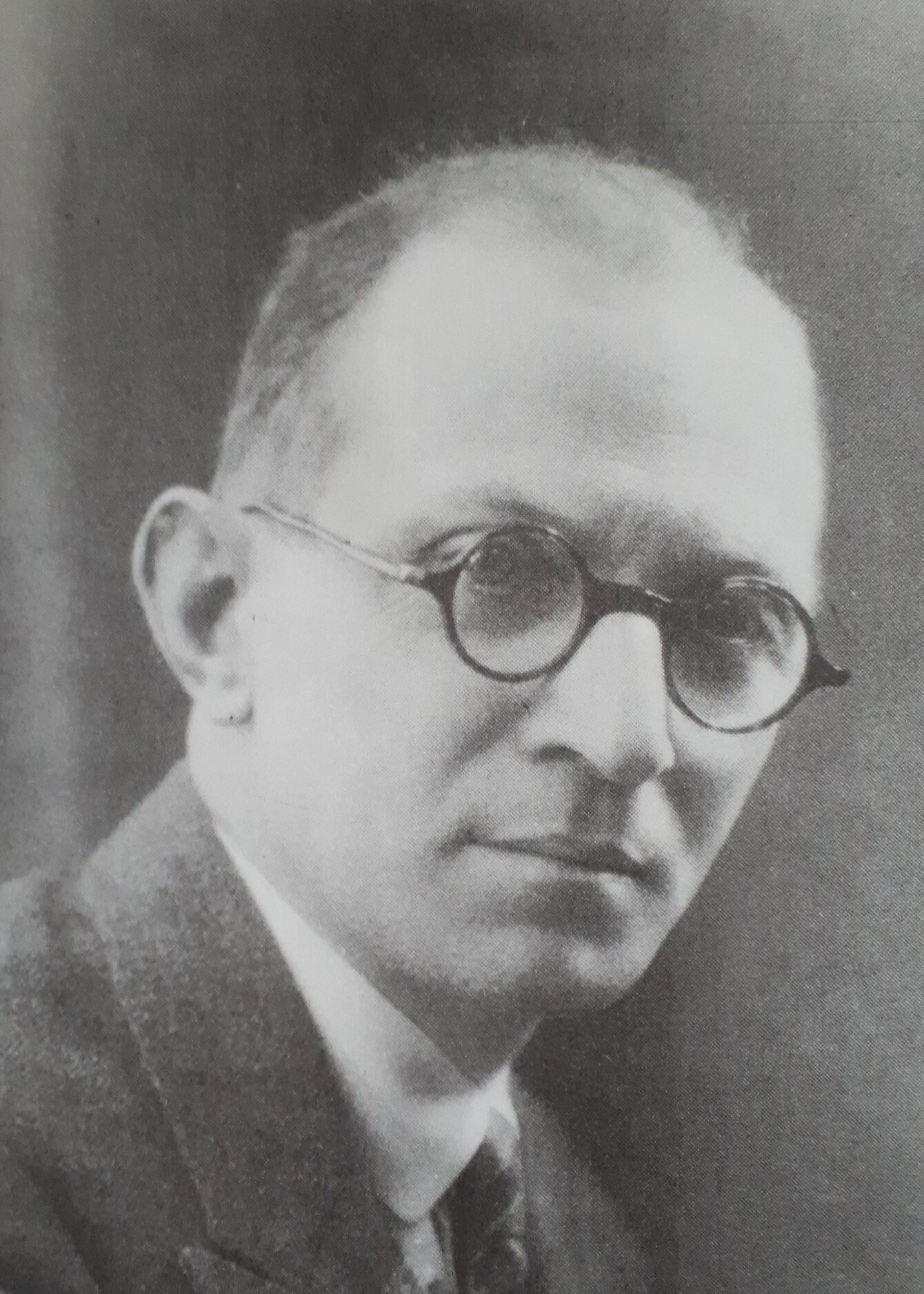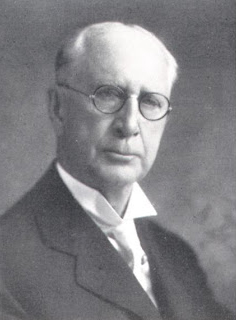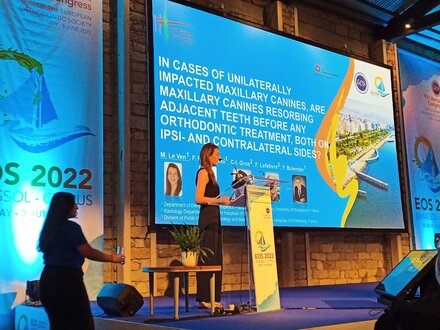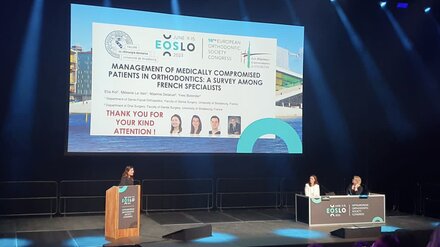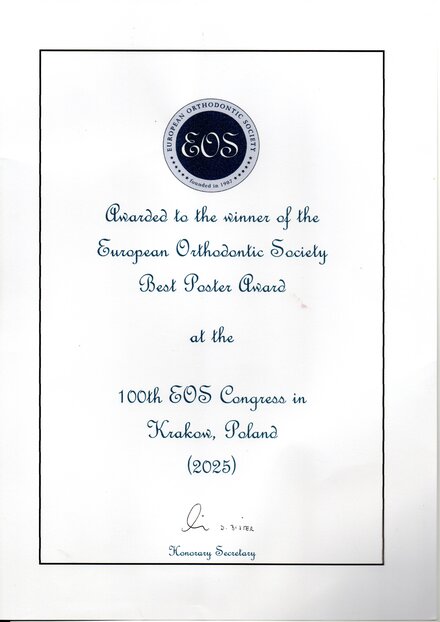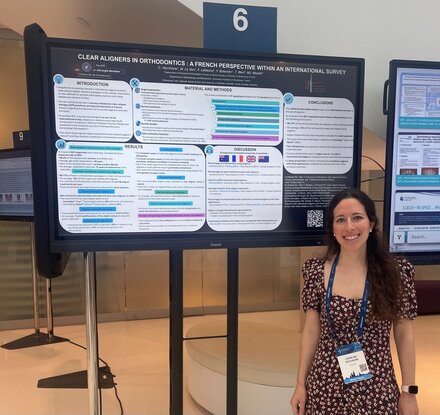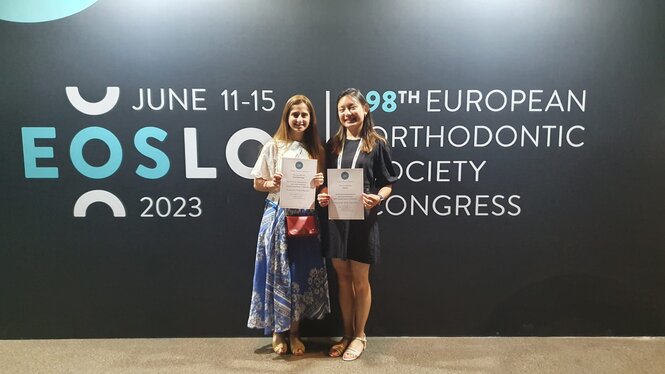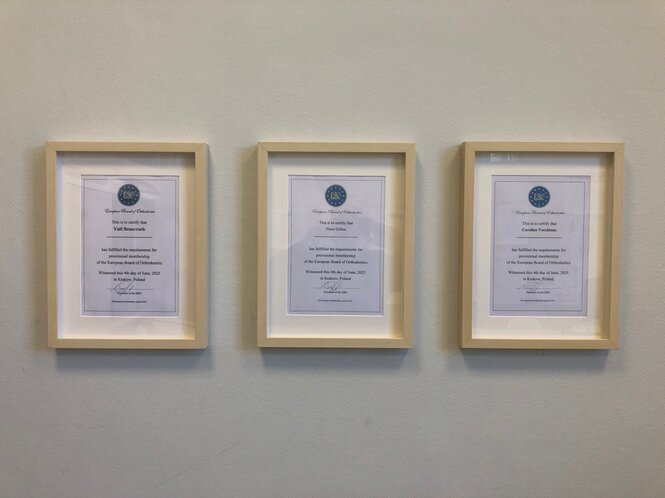- Overview
- 2012-2024 program and literature review of the post-doctoral program in Orthodontics of the University of Strasbourg
- Post-doctoral students participation to national and international meetings
- European Board of Orthodontics provisional certification of former post-doctoral students
- Post-doctoral student posters, oral presentations and publications
- Post-doctoral student DDS's theses and Master's theses
- Team
Sommaire de la page
Overview
Dento-Facial Orthopedics is the branch of Dentistry dealing with malpositioned teeth and/or jaws and their correction by removable or fixed appliances. Orthodontics is actually the oldest specialty in Dentistry since it was recognized in the US as such in 1929 (https://www.americanboardortho.com/).
Dr. Paul Spira (1883-1969 – dentist from Colmar – made Knight of the Legion of Honor in 1932) with the help from a colleague orthodontist from Lyons, Dr. James Thompson Quintero, started to teach orthodontics in Strasbourg in the 1920’s-1930’s.
Dr. James Thompson Quintero was born in Lyons on May 2nd, 1885 to an American father and an American mother. He was the 3rd child of Dr. James Manuel Quintero, eminent dentist practicing in Lyons and his spouse, Frances Augusta Thompson. He left for Philadelphia, Pennsylvania at age 19 and followed until 1907 a 3-year curriculum at the Pennsylvania College of Dental Surgery. He was introduced to orthodontics there during his third year. He completed his orthodontic education by taking courses in 1908 and 1912 given by Dr. William Law (1876-1920), orthodontist practicing in Berlin.
Dr. Law had himself graduated from the University of Michigan School of Dentistry in 1896. He was actually one of the very first students of Edward Hartley Angle (1855-1930), the father of modern orthodontics who was the first practitioner to limit his practice to Orthodontics in 1892 (https://meridian.allenpress.com/angle-orthodontist/article/79/6/1021/58730/A-Biographical-Portrait-of-Edward-Hartley-Angle?searchresult=1, https://meridian.allenpress.com/angle-orthodontist/article/79/6/1028/58685/A-Biographical-Portrait-of-Edward-Hartley-Angle?searchresult=1).
Dr. Law entered in fact in 1903 the Angle School of Orthodontia in St-Louis, Missouri, and moved then in 1906 to Berlin to practice orthodontics. On May 16th, 1907, he was one of the 10 founding members of the European Orthodontic Society and was President of the first annual Congress of the EOS which took place on September 27th-28th, 1907 at the Grand Hotel de Russie in Berlin (https://eoseurope.org/wp-content/uploads/2021/09/History-of-the-EOS.pdf).
Dr. James Thompson Quintero enrolled in the French army in August 1914 at the start of WWI, although he was not to be mobilised since American. He however took the French nationality in November 1914. He stayed at the front line until 1918, was wounded in Verdun and awarded the War Cross and the Legion of Honor as a soldier. He defended his MD thesis during a permission in 1915 and was awarded his final degree from the Lyons Dental School after the war in 1919.
At the end of WWI, Dr. Quintero returned to Lyons to practice Orthodontics. He became first Lecturer on “Orthodontia” at the Lyons Dental School in 1919. He founded in Lyons on May 22nd, 1921 with 19 of his colleagues the Société Française d’Orthopédie Dento-Faciale (http://www.sfodf.org/), the official French orthodontic scientific society which just turned 100-year-old. Dr. Quintero was promoted to the rank of Professor in 1926-1927, position which he held until 1953. As such he was recruited by the Dental Institute of the Faculty of Medicine of Strasbourg to teach Dento-Facial Orthopedics. He passed away in Lyons on February 19th, 1954.
After WWII, orthodontics was taught in Strasbourg (1) by successively Dr. Frédéric Asch, Pr. Jean-Louis Lacoste, Pr. Jean-Paul Charlier, Pr. Hélène Domec-Charlier, Pr. Charles Bolender, Pr. William Bacon, Dr. Rémy Mathis and Dr. Jean-Louis Raymond. The department was led in turn from 1947 to 2017 by Dr. Frédéric Asch, Pr. Jean-Louis Lacoste and Pr. William Bacon.
The French government decided on April 20th, 1977 to introduce the « certificat d’études cliniques spéciales mention Orthodontie » (CECSMO), and doing so officially recognized orthodontics as the first French dental specialty (https://www.legifrance.gouv.fr/jorf/id/JORFTEXT000000514159?isSuggest=true). This part-time education was originally planned on a 3-year period. The minimum number of teaching hours was 2000, divided in 400 hours of lecture, 600 hours of guided instruction and 100 hours of practical work. Consequently, post-graduate education in Orthodontics was initiated in Strasbourg in September 1979 under the leadership of Pr. Charles Bolender.
This certificate, key to the admission to the orthodontic specialty, was replaced in 2012 by the French government by the « Diplôme d’Etudes Spécialisées en Orthopédie Dento-Faciale ». This new post-graduate curriculum in Orthodontics corresponds nowadays to a 3-year full-time education. Admission is regulated through a nation-wide ranking exam: the « concours de l’internat en Odontologie » (https://www.cng.sante.fr/concours-national-dinternat-en-odontologie-odt). This post-graduate program has henceforth evolved toward a total of 7650 teaching hours, fractioned in 600 hours of lecture, 2115 hours of guided instruction and 4935 hours of clinical time.
The orthodontic department staff has the statutory responsibility to provide an orthodontic education both to undergraduate and post-graduate students in Orthodontics.
Orthodontic courses are provided in the 3rd (12 hours), 4th (24 hours) and 5th (12 hours) years of the 6-year DDS undergraduate curriculum. Students are moreover introduced to cephalometrics during the second semester of their 3rd year.
The Faculty of Dental Surgery of Strasbourg is welcoming each year 3 new students in its 3-year post-graduate program in Orthodontics. Tuesday and Thursday mornings are devoted to lectures, case presentations and guided instruction from September 1st till July 14th. This 3-year theoretical education is completed by clinical instruction at chairside in the orthodontic clinic of the University Hospitals of Strasbourg, the remaining time of the week, all year around.
- R.M. Franck, C.J. Bolender, M.C. Manière, B. Kaess, P. Klewansky, C. Allemann et J. Litzler, Histoire de la Faculté de Chirurgie Dentaire de Strasbourg, Editions La Nuée Bleue / DNA, 2004
2012-2024 program and literature review of the post-doctoral program in Orthodontics of the University of Strasbourg
This local curriculum is supplemented yearly by 4 or 5 regional seminars, one week of typodont organized at the national level and a one-day prestige conference organized by the French orthodontic scientific society (SFODF).
Post-graduate students are encouraged to present their research material at national and international orthodontic meetings (Journées de l’Orthodontie, meetings of the European Orthodontic Society and American Association of Orthodontists).
Post-doctoral students participation to national and international meetings
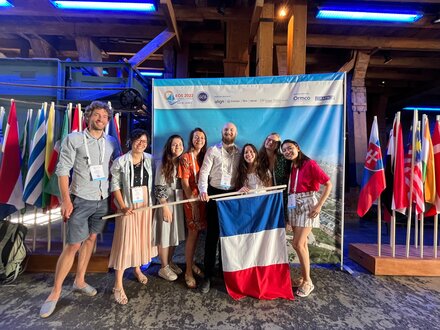
Post-doctoral students from Strasbourg attending the European Orthodontic Society meeting in Cyprus – June 2022
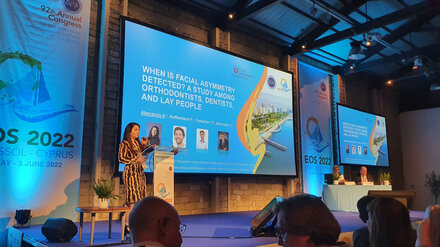
Dr. Aurélia Abecassis speaking during the European Orthodontic Society meeting in Cyprus – June 2022
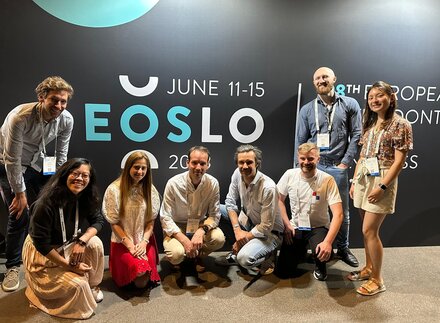
Post-doctoral and ex-post-doctoral students from Strasbourg attending the 98th European Orthodontic Society Congress in Oslo – June 2023
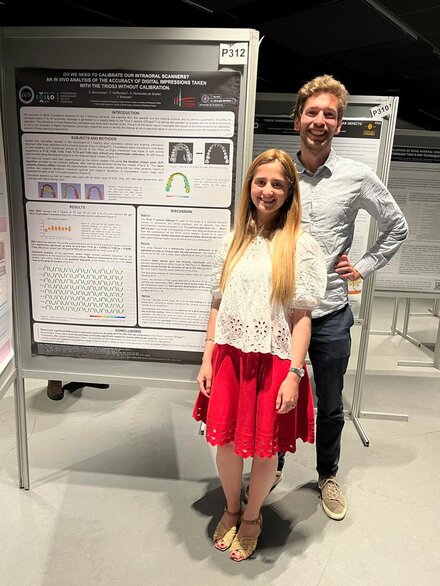
Dr. Shyrel Monsonego presenting her poster during the 98th European Orthodontic Society Congress in Oslo – June 2023
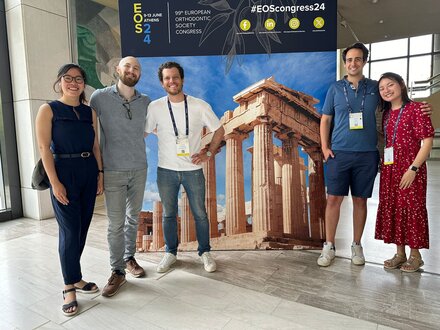
Post-doctoral and ex-post-doctoral students from Strasbourg attending the 99th European Orthodontic Society Congress in Athens – June 2024
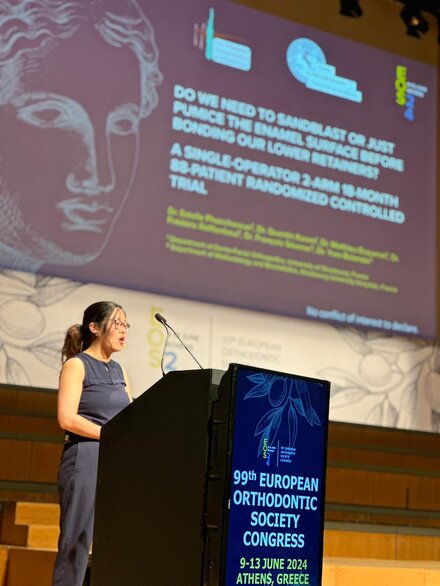
Dr. Estelle Phonchareun speaking during the 99th European Orthodontic Society Congress in Athens – June 2024
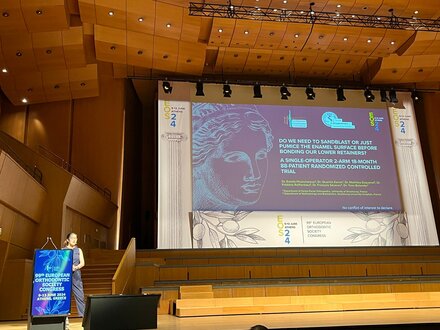
Dr. Estelle Phonchareun speaking during the 99th European Orthodontic Society Congress in Athens – June 2024
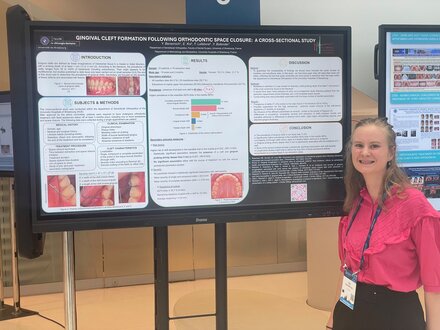
Dr. Yaël Benarroch presenting her poster during the 100th European Orthodontic Society Congress in Krakow – June 2025.
European Board of Orthodontics provisional certification of former post-doctoral students
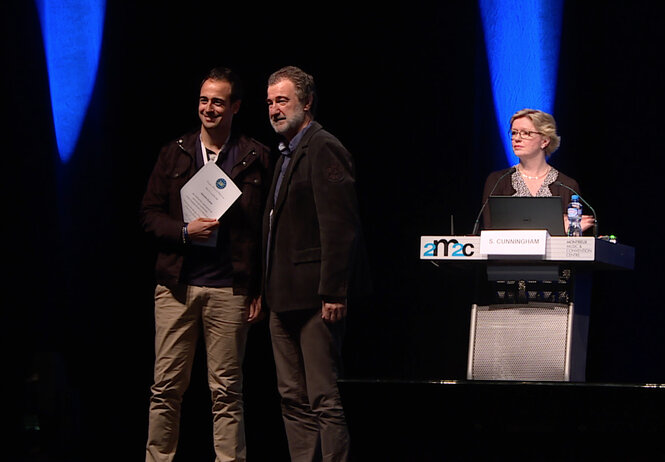
Dr. Quentin Kamm, first former post-graduate student from the University of Strasbourg to become in 2017 a provisional member of the European Board of Orthodontics
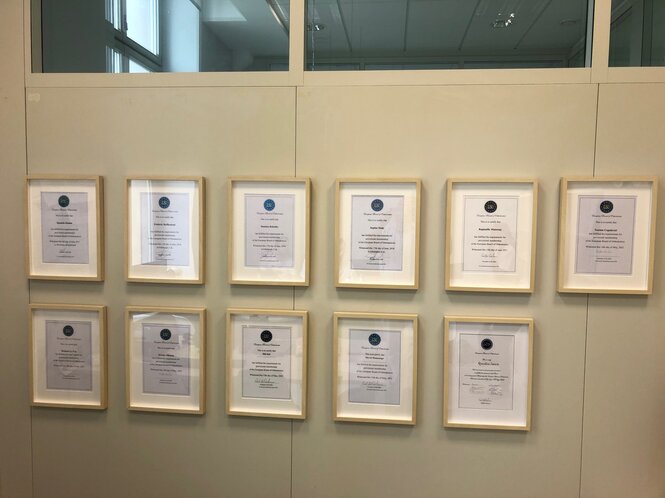
Provisional membership to the European Board of Orthodontics of the following former post-graduate students : Dr. Quentin Kamm, Dr. Frédéric Rafflenbeul, Dr. Damien Robaldo, Dr. Sophie Stolz, Dr. Raphaëlle Maizeray, Dr. Noémie Copelovici, Dr. Mélanie Le Ven, Dr. Jérémy Ohayon, Dr. Elia Kol & Dr Shyrel Monsonego
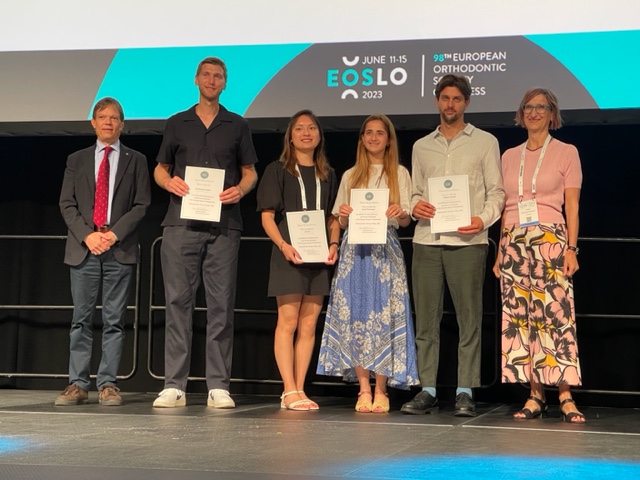
Provisional membership of Drs. Elia Kol and Shyrel Monsonego to the European Board of Orthodontics- 98th European Orthodontic Society Congress in Oslo – June 2023
Post-graduate students are moreover invited to submit their cases treated during their training to the European Board of Orthodontics in order to get certified on a provisional basis (https://eoseurope.org/exams/).
Post-doctoral student posters, oral presentations and publications
https://moodle.unistra.fr/course/view.php?id=5607
click on « accès anonyme »
Post-doctoral student DDS's theses and Master's theses
https://moodle.unistra.fr/course/view.php?id=5606
click on « accès anonyme »
We invite you to follow the news from the orthodontic department on social media :
Team
The team members of the Department of Dento-Facial Orthopedics are all recognized specialists in Orthodontics, and are as follows :
Associate Professors
Lecturers in Orthodontics
Clinical instructors
- Dr. Quentin Kamm
- Dr. Hélène Lévy-Bénichou
- Dr. Morgan Rousseaux
- Dr. Damien Starck
Assistants
All these practitioners have the pleasure to teach to the following :
Post-doctoral students in Orthodontics
1st year:
2nd year:
3rd year:
This team of practitioners is efficiently supported by :
Dental assistants
Lab technicians
